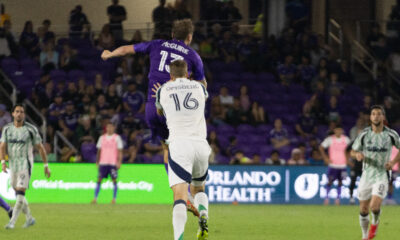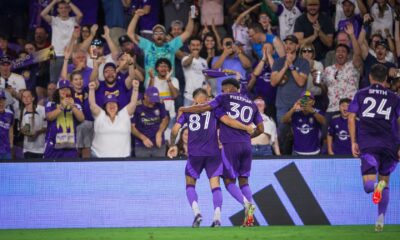Orlando City
How Orlando City’s Offense Stacks Up Against What Atlanta Does Defensively
How Orlando City has performed against teams playing with three or four defenders, and how that may influence the playoff game against Atlanta United.
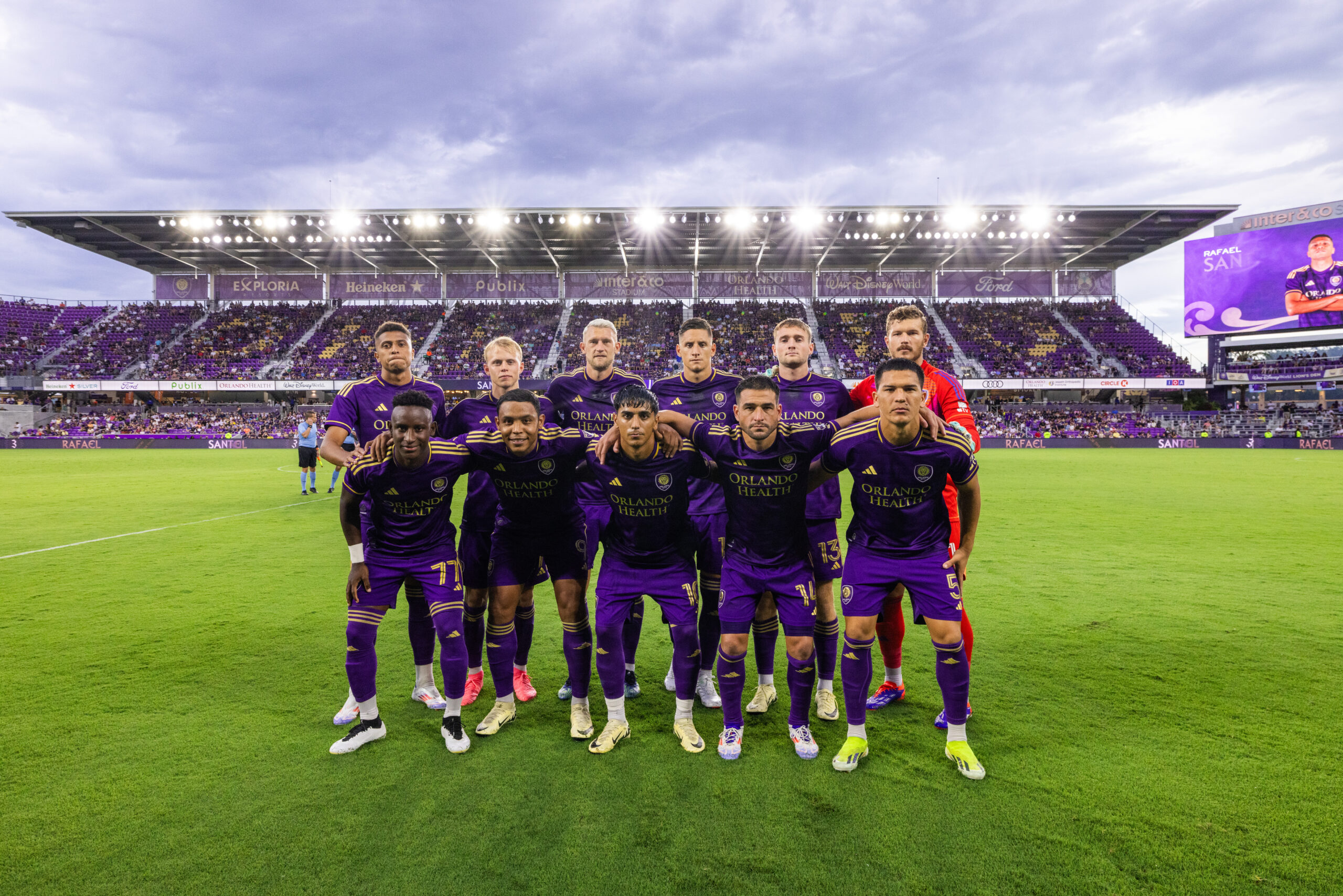
The most famous quote about real estate is that “there are three things that matter in property: location, location, location.” Soccer coaches also like to think in threes, especially when it comes to points, but for a soccer coach, the three things that matter might be the rhyming triplet “formation, formation, formation,” as that is where they will have the biggest influence on every game that their team plays.
Throughout his tenure as head coach, Óscar Pareja has preferred to use a 4-2-3-1 as his formation (fbref.com’s lineup data shows that the Lions primarily played a 4-2-3-1 in 65% of their MLS matches this season, and 79% of their MLS matches during the last three seasons). The Lions have lined up in a 4-2-3-1 during each of their last 14 games, and my confidence level is strong to quite strong (can you believe Meet the Parents came out 24 years ago?) that they will do so once again on Sunday when they host Atlanta United.
Atlanta United also prefers to deploy a 4-2-3-1, but was less consistent than Orlando City this season during MLS play, as evidenced by the chart below that shows how Atlanta lined up this season:
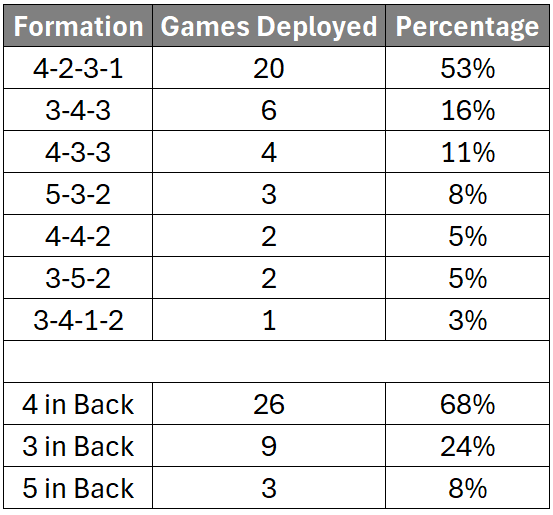
I am relying on the coders at Opta for their evaluation of the formation, as I do not watch a lot of Atlanta United matches (sounds terrible), but though Atlanta primarily played with four defenders in more than two-thirds of its matches, during the last two matches it played a 3-5-2, the only two matches all season in which interim coach Rob Valentino rolled out that formation. I suspect that the formation change was related partially to playing Inter Miami and trying to defend the Herons’ dynamic offense and partially due to an injury suffered by defender Brooks Lennon in the first game of that series. So, while Atlanta primarily played four in the back for most of the season, there is a good chance it will roll with what worked against Florida’s second-best MLS team when it plays Florida’s best MLS team this weekend.
Now, if you want to read more about Atlanta, then you can read our match preview, which will drop Sunday morning, but I want to look at how Orlando did against teams that play similar styles. Looking only at MLS games, the table below shows how Orlando City performed against different back line structures this season (the left side is how the Lions’ opponents lined up, the right side is how Orlando City performed against opponents in those formations):

Orlando City earned slightly more points per game — the stat that matters most — against teams that played four in the back, but the Lions had a better average goal differential when teams played three in the back. Atlanta will likely deploy one of those two formations. In both games against Orlando City this season, Sunday’s visitors went with a 4-2-3-1, but as mentioned earlier, they used three in the back in each of their last two matches, so it really could be either.
Soccer is not like baseball, where players primarily stay in the same spot throughout the game, so some of these stats have to be taken with a grain of salt, as players are not always rigidly in the same position throughout a match. A team may also primarily play with four in the back but switch to three when chasing a game, or five when trying to protect against a late goal.
That said, using the data around Orlando City’s opponents’ general formations, here are the attacking groups who played the most frequently against four defenders during the 24 MLS games where Opta coded the opponents as using a defensive group of four:
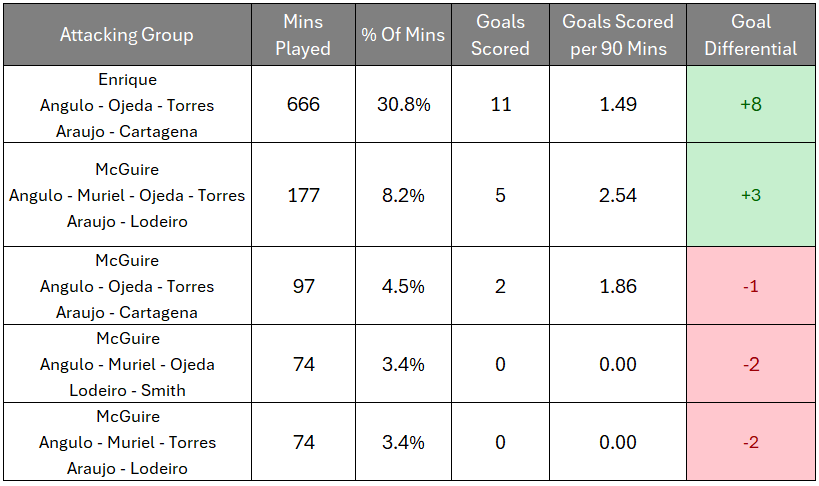
It is a little ominous that the main starting group, shown in row one, has played 666 MLS minutes against back lines of four this season, but do I like that green goal differential of +8 in those minutes, which is a strong +1.08 per 90 minutes. I like that goal differential more than I like all the things that Cardi B, Bad Bunny, and J Balvin like on their song that is creatively named “I Like It.” Coincidentally, when people ask me what I think about that song, I say, “I like it.” I am very creative.
If we look at the lineups that Orlando City has used against back lines of three defenders then there are some pretty major differences in personnel groupings, but it must be noted that more than half of the games against teams playing three in the back came early in the season, when Ramiro Enrique was unavailable to play. Enrique, my presumed starter at striker, has played fewer than three games’ worth of minutes (265 total) against back lines of three this season, and only 28 minutes with the main starting group, which ranks 13th among all the attacking lineups for minutes played against three defenders. That group scored one goal in their 28 minutes together though, for a robust 3.21 goals-scored-per-90-minutes average.
While the team as a whole has been successful against three-man back lines, I do not expect any of the lineups shown in the table below to play more than a few minutes together this weekend, though the first row and the last row are strong groups and had a lot of success.
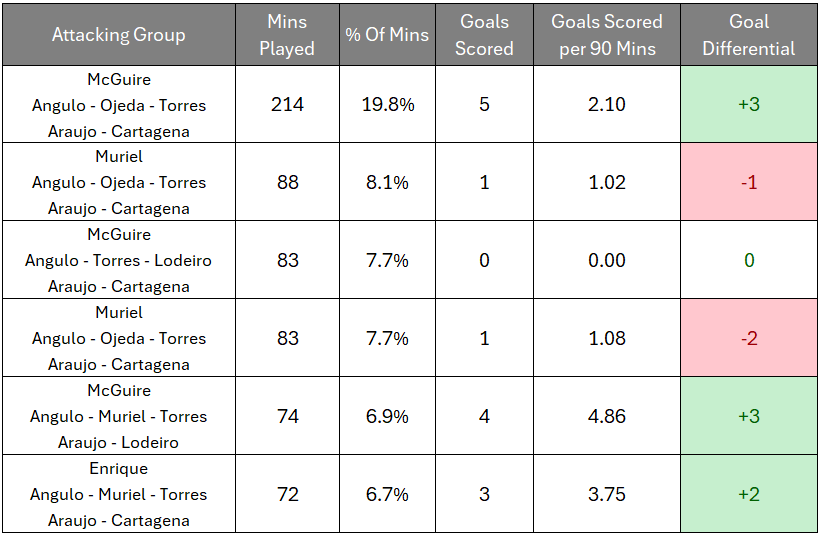
I am sure that all week long the Orlando City coaching staff has been going back and forth on whether it is more likely that Atlanta reverts to its most commonly used four in the back, or if the Five Stripes try for three wins in a row with three in the back. I would prefer that Atlanta plays with zero defenders and goalkeeper Brad Guzan wears a blindfold, but I think that is unlikely to be the case.
Even though Atlanta defeated Orlando City both times while in a 4-2-3-1, based on available personnel and recent results, I believe that the team will come out in a 3-5-2 in Inter&Co Stadium in the conference semifinal. Good things come in threes, and Orlando City’s best offensive production this season has been against three defenders, so I am going to be hoping that this continues, and in the third game against Atlanta the Lions grab the three points. Three’s company!
Well, it is a playoff game, so there are no actual points at stake, but you know what I meant.
Vamos Orlando!
Orlando City
Orlando City Striker Duncan McGuire Undergoes Shoulder Surgery
It’s the other shoulder this time, but Big Dunc is on the shelf for awhile again after undergoing surgery.
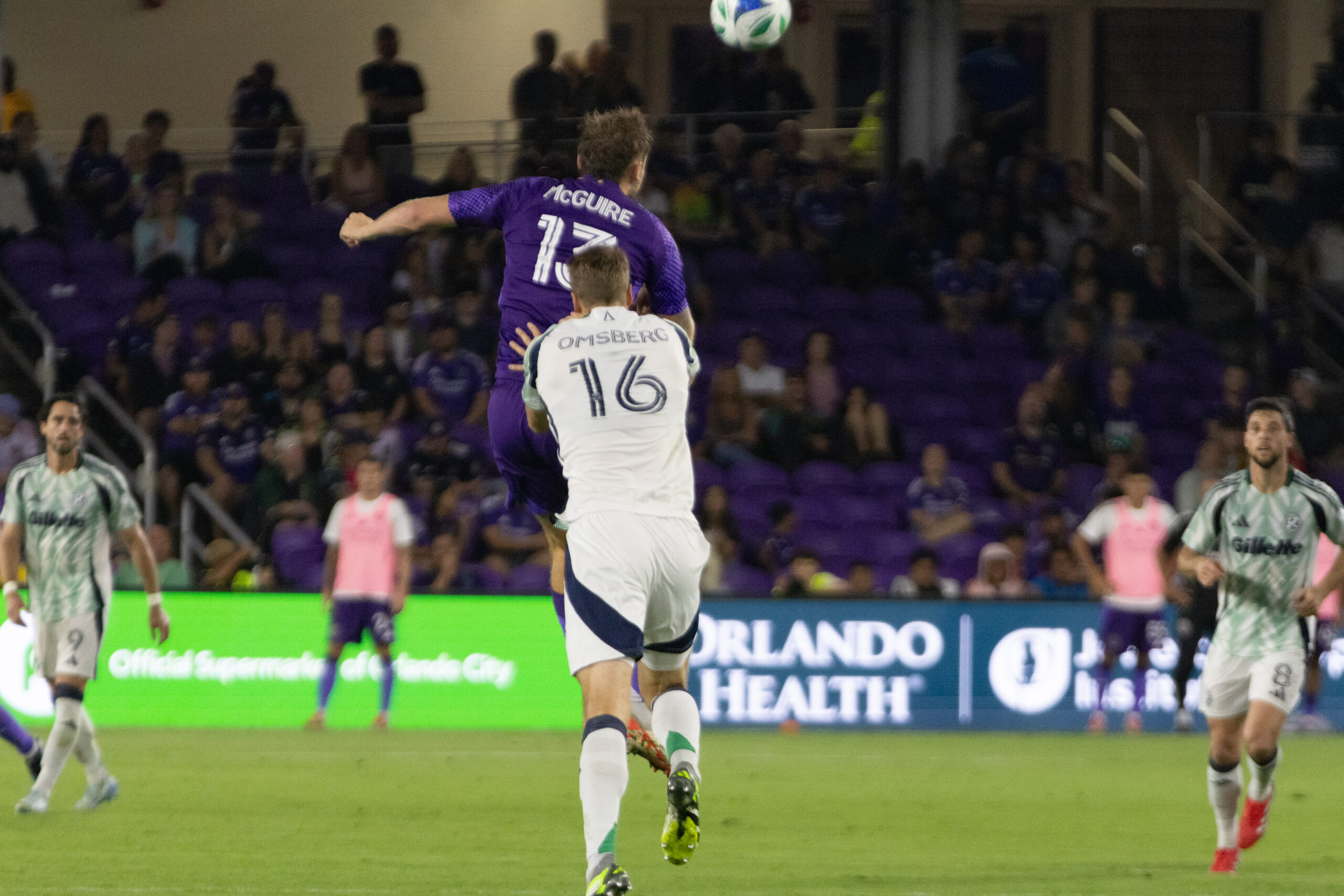
Orlando City announced today that Duncan McGuire has undergone arthroscopic surgery to repair the labrum in his left shoulder. The surgery was performed by Orlando City Chief Medical Officer Dr. Craig Mintzer of the Orlando Health Jewett Orthopedic Institute performed the surgery. Mintzer previously repaired the labrum and rotator cuff in McGuire’s right shoulder back in December for an injury he sustained in Orlando City’s playoff match against Charlotte FC Nov. 9 when he was pulled down by Djibril Diani.
The club’s press release said the 24-year-old striker’s return to play is expected “later this year.” The recovery given for his right shoulder surgery in late 2024 was listed as four to five months, but McGuire was able to come back and play much earlier than expected, appearing for the first time in 2025 in Orlando’s March 15 against the New York Red Bulls — at least a month before the earliest initial projection — however, this time there was no mention of damage to the rotator cuff.
Regardless, the Lions will be without the big target striker for a considerable amount of time.
McGuire had appeared in 12 matches during the regular season in 2025, starting three and scoring one goal and adding an assist. His goal came recently, serving as the game winner in Orlando’s 1-0 home victory over the Portland Timbers on May 24. He was recently listed as questionable on the club’s availability report ahead of the team’s most recent match against the Chicago Fire.
Orlando City drafted McGuire in the first round (No. 6 overall) in the 2023 MLS SuperDraft. After a breakout rookie campaign, in which the Omaha, NE native scored 14 goals, he was courted by several teams in Europe, signing with Blackburn Rovers, only to see the transfer rejected by the English Football League due to an administrative error by the EFL Championship club. After returning to Orlando, McGuire signed a new deal on Aug. 22 to remain a Lion. The new contract runs through 2027 with a club option for 2028. McGuire scored 10 goals and added three assists in 2024. For his Orlando City career, McGuire has appeared in 88 games (46 starts) across all competitions, scoring a total of 28 goals to go along with seven assists.
What It Means for Orlando City
McGuire appeared to be just finding his form, so this injury is unfortunate. The club didn’t put a timeline on McGuire’s recovery this time, but shaving a little off his 2024 recovery estimate, it’s likely that he’ll be out until at least some time in September.
Oscar Pareja has been favoring a 4-4-2 with Luis Muriel and Martin Ojeda up top in recent weeks, with Ramiro Enrique — who is also finding his form — typically spelling one of them when needed. Not having McGuire will affect Pareja’s late-game substitution pattern when Orlando is trailing, as he likes to put Enrique and McGuire both on the field when chasing the game. It also takes the team’s best target striker option out of the lineup when dealing with back lines with lots of height.
McGuire brings size and strength and an ability to occupy center backs that others on the roster can’t replicate. There are times when Enrique’s game is better suited to the opponent, but without McGuire there will be no ability to pivot. With Jack Lynn’s off-season retirement, that leaves the striker pickings mighty slim on the Orlando City bench. That might change Ricardo Moreira’s approach to the MLS Secondary Transfer Window.
Losing a scorer of McGuire’s caliber is always difficult, but this season it could be the difference between finishing high in the table and simply getting into the postseason in a strong Eastern Conference field.
Opinion
Orlando City Must Learn from May’s Mistakes
The Lions can learn some valuable lessons from the three losses they suffered in May.
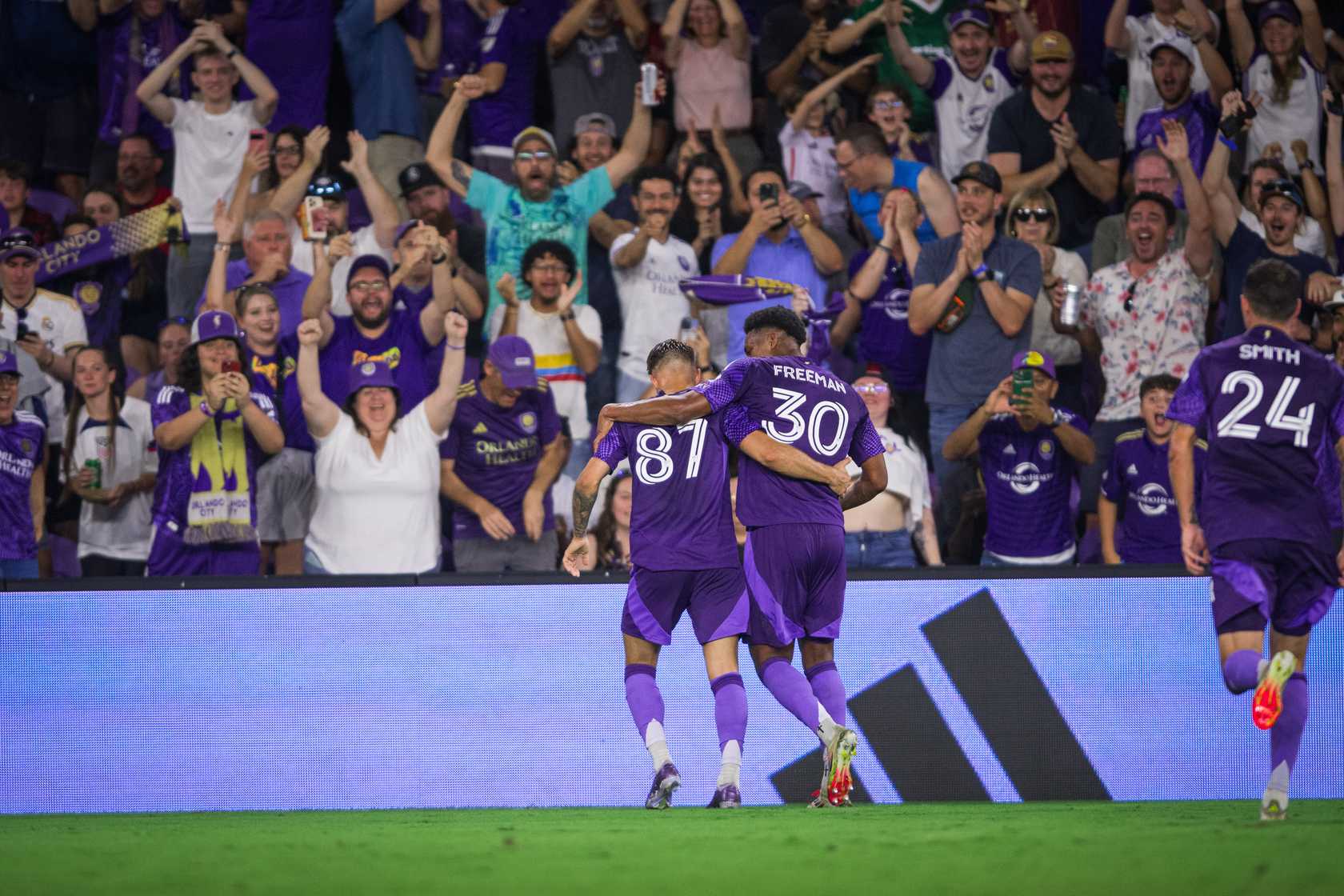
Orlando City hadn’t quite achieved juggernaut status as the Major League Soccer season turned from April to May, but a 12-match unbeaten run in the league is nothing to sniff at, despite there being a healthy number of draws interspersed with the victories. Things turned sour as May drew to a close though, as the Lions lost three of their final four matches of the month and entered a two-week break with a whimper rather than a roar.
Losing is never fun, but in this case those three defeats don’t need to be entirely negative experiences, and there are plenty of lessons to be learned from those three bitter losses that will hold Orlando in good stead if it can implement the proper solutions.
More Squad Rotation
One of the biggest factors in Orlando’s rough finish to May was a lack of squad rotation. Oscar Pareja has always been a coach that likes to find his first-choice XI and stick to it almost religiously. He doesn’t normally tweak his lineups or tactics according to whatever opponent is on the slate, and very much values consistency. In periods of fixture congestion, that tendency can be to Orlando’s detriment, and that was very much the case against both Nashville SC and the Chicago Fire.
After beating Inter Miami 3-0 in an emotional rivalry match on May 18, Pareja made just one change for a U.S. Open Cup match against Nashville SC three days later. Ramiro Enrique slotted in for Luis Muriel up top, but every single other starter from the Miami game also got the nod midweek. With Nashville deploying a heavily rotated lineup mostly filled with backups, the gamble was a simple one: hope that OCSC’s A-team can open up a big first-half lead against Nashville’s B-squad before bringing mass changes in the second half to get guys some rest. Hindsight is, of course, 20/20, but the strategy backfired badly as the Lions lost 3-2. Orlando started well with Marco Pasalic’s 17th-minute strike, but the team faded badly afterwards and gave up a couple of very uncharacteristic goals to lose the game. Lapses in concentration and tired defending cost OCSC the game, and that isn’t something we can normally say about this team.
Then, after losing to Atlanta United 3-2 on May 28 due in no small part to Cesar Araujo’s red card, Pareja made two changes for a match against the Chicago Fire on May 31, with Muriel coming in for Enrique, and the other change being a forced one, as Eduard Atuesta replaced the suspended Araujo. Those starters looked noticeably gassed during the resulting 3-1 loss, and the fatigue manifested itself by players missing chances that would normally be converted or in sloppy, mistake-ridden defending.
May was a packed month with a whopping nine matches in 31 days, and most months won’t be that busy. August is set to be the busiest remaining period of the year with six games in 31 days, although that number could rise higher if the Lions make a run in Leagues Cup. The bottom line is that guys are going to need more rest as the season goes on. If the coaching staff doesn’t trust some of the guys currently available as backups, then they need to dip into the transfer market in one way or another and get some players that they do trust, because if the starting XI gets run ragged during busy periods it’s going to cost Orlando, plain and simple.
Cool Heads Usually Prevail
Orlando City has received three red cards on the season, which is tied for the second-most in the league. Unsurprisingly, the Lions are winless in games in which they’ve had a man sent off, with draws against the New York Red Bulls and CF Montreal and a loss to Atlanta United. The results against the Red Bulls and Atlanta were particularly difficult to swallow, as before going down to 10 men, Orlando had looked on track to get three points in each game.
Araujo’s red card against Atlanta was especially frustrating, as he allowed Mateusz Klich to get under his skin, grabbed him by the throat, and reduced his team to 10 men when OCSC was nursing a 2-1 lead on the road. It was completely unnecessary and was also the sort of thing that Orlando had looked to put in the rearview mirror after keeping its collective composure and not picking up any bookings in the 3-0 road win against Miami, while the Herons picked up four and looked noticeably rattled in the process.
It should go without saying, but the Lions can’t afford to get key players sent off. Six extra points could make a big difference in the standings at the end of the year, and that number could rise even higher if OCSC can’t put its disciplinary issues to rest once and for all.
Focus for the Full 90
There were moments in each of Orlando’s three May losses that the team committed bad defensive lapses or mistakes. Whether it was not playing to the whistle on Nashville’s third goal, Atuesta’s bad turnover against Atlanta, or the Lions collectively allowing Chicago to stroll through midfield to score a third goal, there were plenty of examples of bad breakdowns that were largely absent during the team’s unbeaten run. Can some of that be attributed to tired minds and tired legs? Maybe so — it’s a lot harder to play crisp and focused when the minutes have piled up. Regardless, its something that can’t continue to happen going forward. It’s possible that having more rotation in the squad will help that a lot, but it’s also on the players on the field to stay as mentally sharp as they can when they’re out on the pitch.
Clearly, a recurring theme here is that fresh legs and balanced squad rotation are top of my list of things I want to see change. I’m all for riding the hot hands, but tired legs make for tired minds, and tired minds make mistakes and are easier to rile up. Whether reinforcements come from the bench or an outside source, using more bodies will go a long way towards solving some of the issues that we saw in May’s three losses. All we can do now is wait and see what happens once the team returns from its break. Vamos Orlando!
Lion Links
Lion Links: 6/6/25
Alex Freeman called up for Concacaf Gold Cup, Orlando Pride get ready for the Houston Dash, Orlando City B plays tonight, and more.
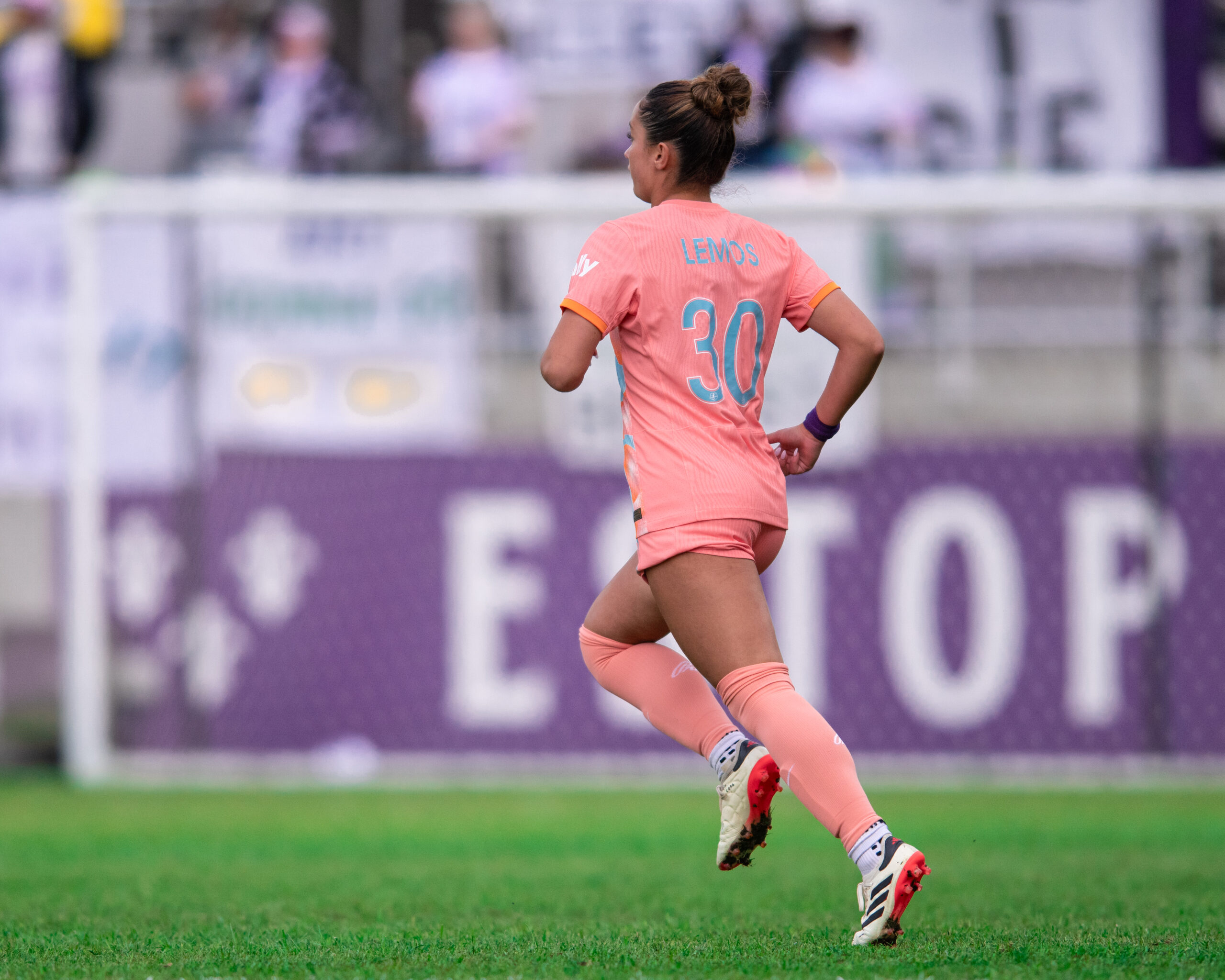
Happy Friday! I’ll be spending this weekend celebrating my birthday by beating my friends at mini golf with no mercy but still hope to catch some soccer over the next few days. I’ve also been on a bit of a movie kick and plan on catching Wes Anderson’s new flick at some point soon. But for now, let’s dive into today’s links!
Alex Freeman Called Up For Gold Cup
Orlando City defender Alex Freeman was officially called up by the United States Men’s National Team for the Concacaf Gold Cup this summer. He’s the only Lion who will be at the tournament and is one of seven uncapped USMNT players on the roster. The 20-year-old could receive more playing time than expected, as right back Sergino Dest is not on the roster so that he can recover over the summer. Left back John Tolkin was added to replace Dest, so Freeman has a real shot at making a claim for the position this month. The U.S. will take on Turkey Saturday in the first of two friendlies before its first Gold Cup match against Trinidad & Tobago on June 15.
Orlando Pride Prepares to Host the Houston Dash
With the international break for women’s soccer over, the Orlando Pride return to action Saturday with a home game against the Houston Dash. It should be a great opportunity for the Pride to ease back into the swing of things against a Dash team that’s only scored 10 goals this season. Pride midfielder Ally Lemos spoke on the benefit of being able to rest heading into this match while maintaining a winning mindset from a 3-1 victory on May 23.
Anna Moorhouse Called Up For 2025 Euros
Orlando Pride goalkeeper Anna Moorhouse was named to England’s final roster for the 2025 UEFA European Women’s Championship. She’s one of three goalkeepers on the squad following Mary Earp’s surprise retirement from international soccer, and she will likely compete with fellow uncapped player Khiara Keating for the backup position behind Hannah Hampton. Moorhouse has started in every game for the Pride this season and was an NWSL Goalkeeper of the Year finalist for her record-breaking season last year. England’s Euro run will begin July 5 against France before other group matches against the Netherlands and Wales.
Orlando City B Takes On Huntsville City FC
The Young Lions are riding high after a 2-1 win over Chattanooga FC and will take that momentum into tonight’s road match against Huntsville City FC. Midfielder Noah Levis scored his first career goal in that home win, with Justin Hylton providing the assist in his OCB debut. Orlando’s offense has been hot and cold this season but has a variety of attacking talent that can create chances in different ways. The Young Lions have only won once on the road, but a win tonight would lift them to third in the Eastern Conference.
Free Kicks
- FIFA Club World Cup action is coming to the City Beautiful this month and Orlando City legend Kaká spoke on how it’s nice for Orlando to host games.
- San Diego Wave Head Coach Jonas Eidevall was named NWSL Coach of the Month. The Wave were undefeated in May, winning three of their four matches to climb to second in the league standings.
- The NWSL will allow intraleague loans for all teams, with the players needing to consent to the move in order for it to happen. Denver and Boston’s expansion teams will have access to potentially over $1 million in Allocation Money starting on July 1 to build their rosters before the 2026 season.
- Atletico Madrid is reportedly close to signing American midfielder Johnny Cardoso from Real Betis.
- South Korea, Uzbekistan, and Jordan all qualified for the 2026 World Cup, while China was eliminated from contention. Australia beat Japan 1-0 and will qualify so long as it doesn’t lose heavily to Saudi Arabia on June 10.
- Spain beat France 5-4 in a wild game to reach the UEFA Nations League final against Portugal on Sunday. Lamine Yamal continues to take the world by storm, but a late rally by France nearly completed a comeback.
That’s all I have for you this time around. I hope you all have a fantastic Friday and rest of your weekend!
-
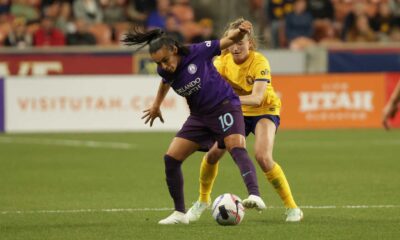
 Orlando Pride2 weeks ago
Orlando Pride2 weeks agoOrlando Pride vs. Utah Royals: Preview, How to Watch, TV Info, Live Stream, Lineups, Match Thread, and More
-
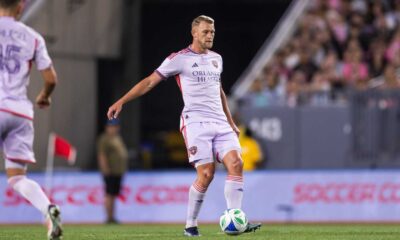
 Orlando City2 weeks ago
Orlando City2 weeks agoOrlando City vs. Portland Timbers: Preview, How to Watch, TV Info, Live Stream, Lineups, Match Thread, and More
-
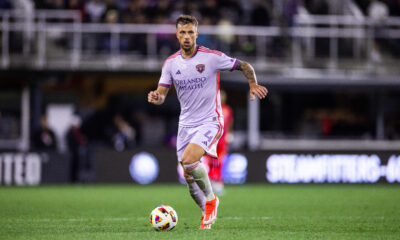
 Lion Links1 week ago
Lion Links1 week agoLion Links: 5/30/25
-
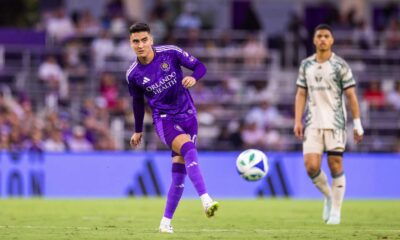
 Orlando City2 weeks ago
Orlando City2 weeks agoOrlando City vs. Portland Timbers: Final Score 1-0 as Lions Tie Club-Record 12-Game Unbeaten Streak
-
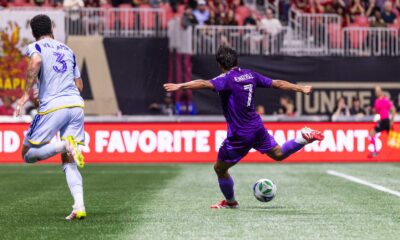
 Orlando City1 week ago
Orlando City1 week agoOrlando City vs. Atlanta United: Final Score 3-2 as Late Araujo Red Card Turns Orlando Lead into a Loss
-
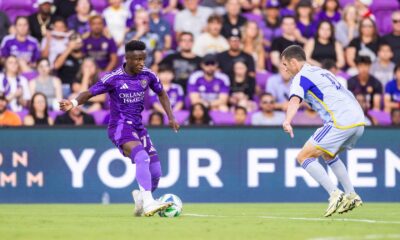
 Orlando City1 week ago
Orlando City1 week agoOrlando City vs. Atlanta United: Preview, How to Watch, TV Info, Live Stream, Lineups, Match Thread, and More
-
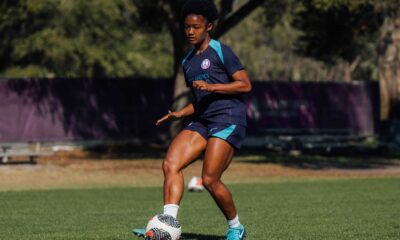
 Orlando Pride1 week ago
Orlando Pride1 week agoOrlando Pride Sign Forward Simone Jackson Through 2028
-
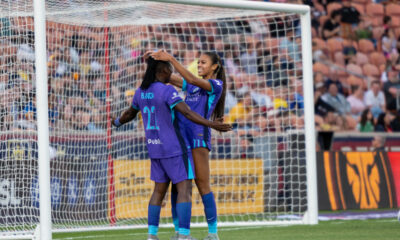
 Orlando Pride2 weeks ago
Orlando Pride2 weeks agoOrlando Pride vs. Utah Royals: Final Score 3-1 as Pride Win Behind Barbra Banda Hat Trick


